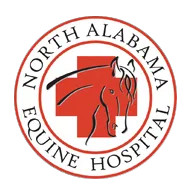
Vaccine Recommendations
Annual Vaccines
- Rabies (Typically given in the spring with the increased activity of small wildlife)
- Strangles (Cannot give at the same time as dental float)
- Tetanus (Tetanus Booster is necessary with laceration or penetrating injury if time from last Tetanus Vaccination is greater than 6 months)
- PHF (Potomac Horse Fever)
Bi-Annual Vaccines
- Rhino Flu
- EWTWN (Eastern Western Tetanus West Nile)
*Each horse should be evaluated based upon his/her use and potential exposure to other horses and wildlife*
Vaccination Schedule for Foals and Broodmares
Foaling Care and Instructions
Foals from vaccinated mares should receive initial vaccines at 5 months of age, followed by boosters in 4 weeks.
Foals from unvaccinated mares should receive initial vaccines at 3 months of age, followed by boosters in 4 weeks.
|
Vaccine
|
Foal
|
Broodmare
|
|
Eastern/Western Encephalomyelitis
|
At 5 months of age, followed by boosters in 4 weeks.
|
Every 6 Months, boost 30-45 days before foaling date.
|
|
Tetanus
|
Antitoxin 12 hours post foaling. At 5 months of age, followed by boosters in 4 weeks.
|
Annually, boost 30-45 days before foaling date.
|
|
Rhinopneumonitis
|
At 5 months of age, followed by boosters in 4 weeks.
|
Every 3 Months, boost 30-45 days before foaling date.
|
|
Influenza
|
At 5 months of age, followed by boosters in 4 weeks.
|
Every 3 Months, boost 30-45 days before foaling date.
|
|
Rabies
|
At 5 months of age, followed by boosters in 4 weeks.
|
Annually, boost 30-45 days before foaling date.
|
|
Potomac Horse Fever
|
Consult With Your Veterinarian
|
Consult With Your Veterinarian
|
|
Strangles (Intranasal)
|
At 5 months of age, followed by boosters in 4 weeks.
|
Consult With Your Veterinarian
|
|
Pneumabort-K
|
Foal Does Not Receive
|
At 5th, 7th, and 9th month of gestation.
|
|
Influenza
|
At 5 months of age, followed by boosters in 4 weeks.
|
Every 3 Months, boost 30-45 days before foaling date.
|
|
West Nile Vaccine
|
At 5 months of age, followed by boosters in 4 weeks.
|
Every 6 Months, boost 30-45 days before foaling date
|
* Each horse should be evaluated based upon his/her use and potential exposure to other horses and wildlife. All pregnant broodmares should be booster-vaccinated at approximately 10 months of pregnancy to insure adequate immunity. They should also receive pneumabort-k vaccines at 5, 7 and 9 months of pregnancy.
Worm Smart De-Worming Program
De-Worming is an integral part of your horse overall health.
Improper de-worming includes:
- Over de-worming
- Under de-worming
- Using improper de-wormers
Proper de-worming should be tailored to each individual horses needs. The first step is having a fecal egg count performed on each horse on the farm. This is recommended to be done in the fall and spring. The fecal should be taken at least 60 days from the last de-worming. The fecal sample should be fresh. If taken at night, the sample needs refrigerated and dropped off at the hospital the next day. The proper fecal egg count will allow us to develop the best de-worming schedule for your farm on each individual horse. After your fecal analysis has been performed we will develop your de-worming program for the year. Call our office to get this program started for your horse.
**Pregnant mares, foals, and geriatric horses may require a different deworming program. Please call the Hospital for more information.**
Dentistry
It is recommended that all patients receive annual dental exams to evaluate the patient's oral health and possible need for dental floating.
Coggins Testing
All patients should receive coggins testing annually.
NAEH now offers GlobalVetLink Coggins. "Carbon copy paper forms are now a thing of the past. GlobalVetLink offers cutting edge technology to accredited veterinarians and NVSL accredited EIA laboratories for electronic EIA (Coggins) certificates and health certificates. Your vet has the opportunity to take digital photos of your animals for online health certificates. If you are an equine owner, the vet is required to take digital photos of your horse to include on EIA certificates. This creates an alternate form of identification when traveling with your animal. Since GlobalVetLink electronically connects to diagnostic laboratories, results are real time which provides you with results when they are completed not when the paper is delivered. Certificates are sent to state officials as they are created. All 50 states accept electronic certificates so moving animals with GlobalVetLink certificates is easy. Animal owners enjoy improved certificates through GlobalVetLink as accredited veterinarians and diagnostic laboratories subscribe to the service. "
- GlobalVetLink
Farrier Care

We recommend that patients receive routine farrier care every 5 to 8 weeks as part of a preventative health care program. Each horse has it's own unique and specific needs and requests. Therefore a protocol should be established based on an evaluation by your vet and farrier to determine a schedule that best suits you and your horse.
Click here to view a list of local farriers
Equine Supplements
NAEH now offers Platinum Performance Direct Dispense Online ordering!
"Use Platinum Direct Dispense to conveniently order the nutritional products your veterinarian has recommended. Login by entering your veterinarian's Direct Dispense ID and your email address. If you would prefer to place your order over the phone or have any questions, please contact us at (800) 688-3229." - Platinum Performance
Just log onto http://www.platinumperformance.com/dispensePage.cfm and type in Dr. Dunlap's ID Veterinarian DD ID (DU1) and enter your e-mail address to order!



